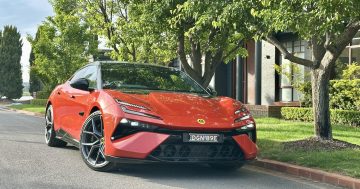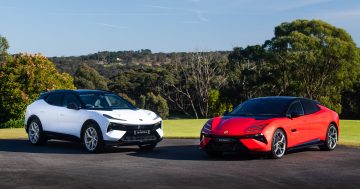
The Lotus Eletre S posing near Ainslie Place in Civic. Photo: James Coleman.
I could start this review with grumbles. Maybe about how the new Lotus Eletre is an SUV – fully electric at that – and not a two-door sports coupe. And how Lotus is not British-owned and built – although that might be a positive – because while the cars are still designed in the UK, they’re put together in Wuhan.
There’s also Colin Chapman himself to contend with, who founded Lotus in 1948 with the ethos of “Simplify, then add lightness”, which isn’t quite the same as “Complexify, then add a heck of a lot of weight”.
But no.
We’ve been over this with the Emeya – Lotus’s new “hyper-sedan” – and arrived at the conclusion that it was simply too good to cast on the pile of automotive misfits on mere matters of principle.
And the only difference between that and the Eletre is that the Eletre is higher off the ground. And comes with an off-road mode. And if you thought the Emeya was heavy at 2.5 tonnes, try this one’s 2.6 tonnes on for size.
Okay, so they’re quite literally big differences, but the only downside – as far as I can tell – is that the Eletre rolls slightly more in the corners.
That is, until you put it in Sport mode when it hunkers down on its air suspension and grips like a toddler being told to share a toy.








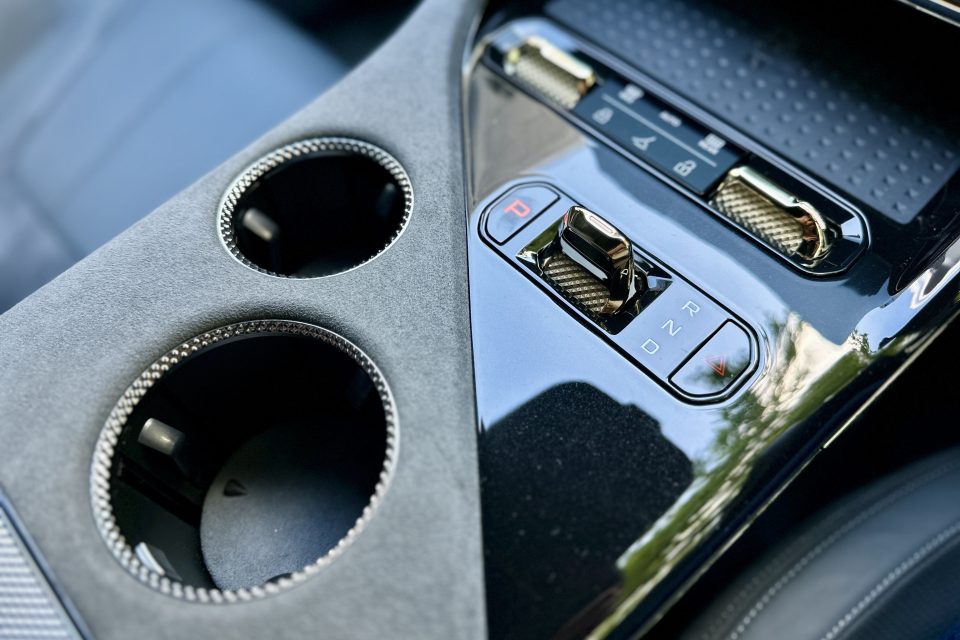
The thinking behind the brand’s approach with the Eletre is the same as it was with the Emeya: make Lotus mainstream and beat Porsche at its own game.
And at this, the Eletre is also killing it.
Ducking and weaving throughout the sleek shape are channels and louvres and vents designed to push air where it’s needed – some so vast, I could actually insert my entire arm into them (not a top tip – just an observation).
The end result is the Eletre looks like it should be up there in the half-a-million-dollar club, clinking drinks with super SUVs like the Lamborghini Urus or Ferrari Purosangue. Not exactly seductive, but definitely striking.
But on pricing, the Lotus Eletre goes toe-to-toe with the Porsche Cayenne.
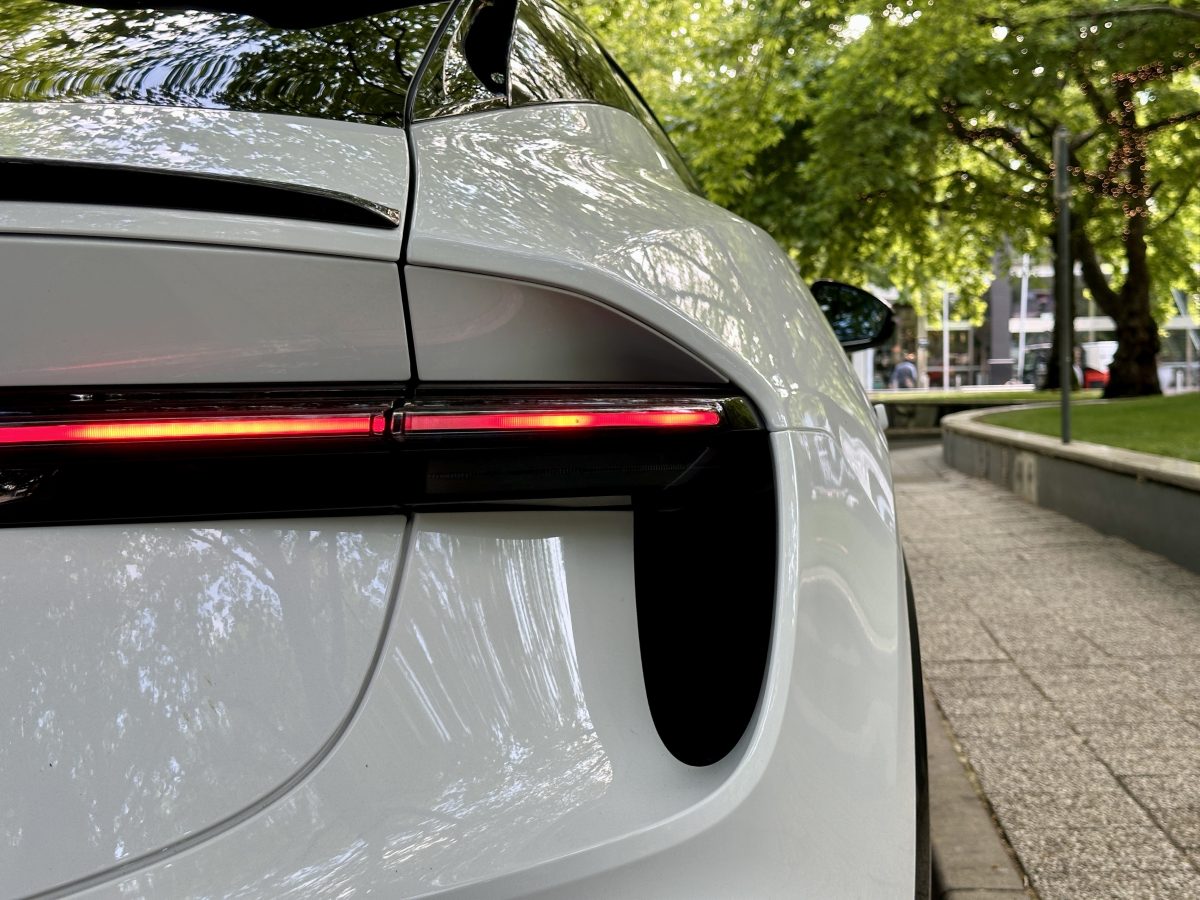
That black hole goes all the way through to the rear tyre. Photo: James Coleman.
There are three models: the base (if we can call it that) at $189,990, the R at $279,990, and my S sandwiched neatly in between at $229,990.
Inside is a mix of grey suede and leather, studded with gold-coloured milled levers and buttons, and perhaps a little polarising in my case, seatbelts striped with green and yellow. And no, that’s not a nod to Cricket Australia. They’re the colours of the Lotus logo, and I, for one, likey very much.
Or how about the various massage options for the driver and passenger? Or a sound system you can adjust to sound like the music is coming from a stage in front of you or from all around you?
Lotus could have gone overboard and tacky with this. But they haven’t – it’s tasteful. These are proper luxury items.
To the important bit, though. The Lotus bit. How it drives. And as with the Emeya, I don’t know how they’ve done it.
You can tell internal combustion intrinsically carries more theatre because no one boasts about a 111.9 kWh battery capacity and 350 kW charging rate that means it can be full again in less than half an hour – in the same way I won’t tell you about the fridge I bought this week.

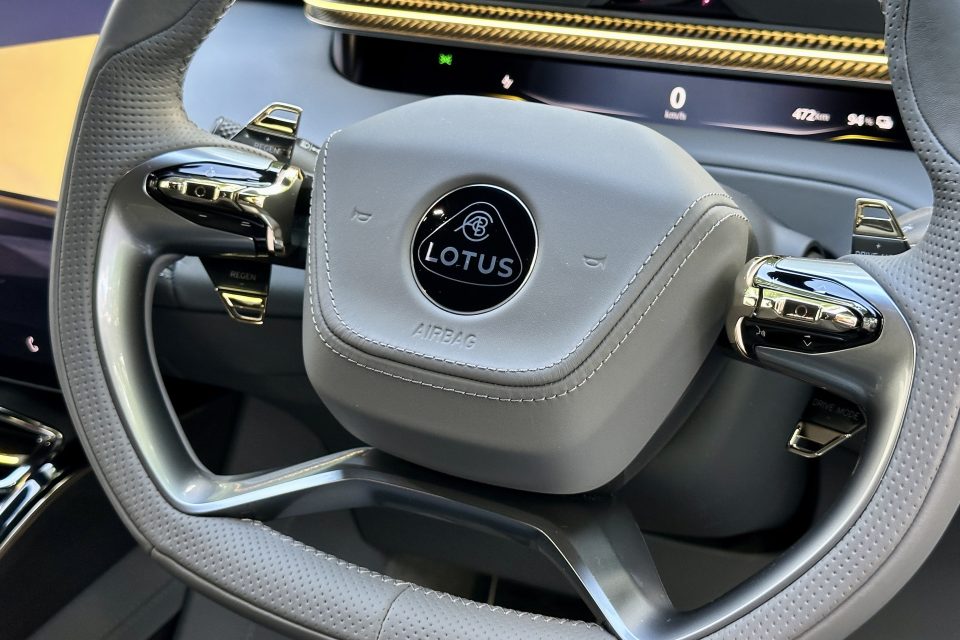
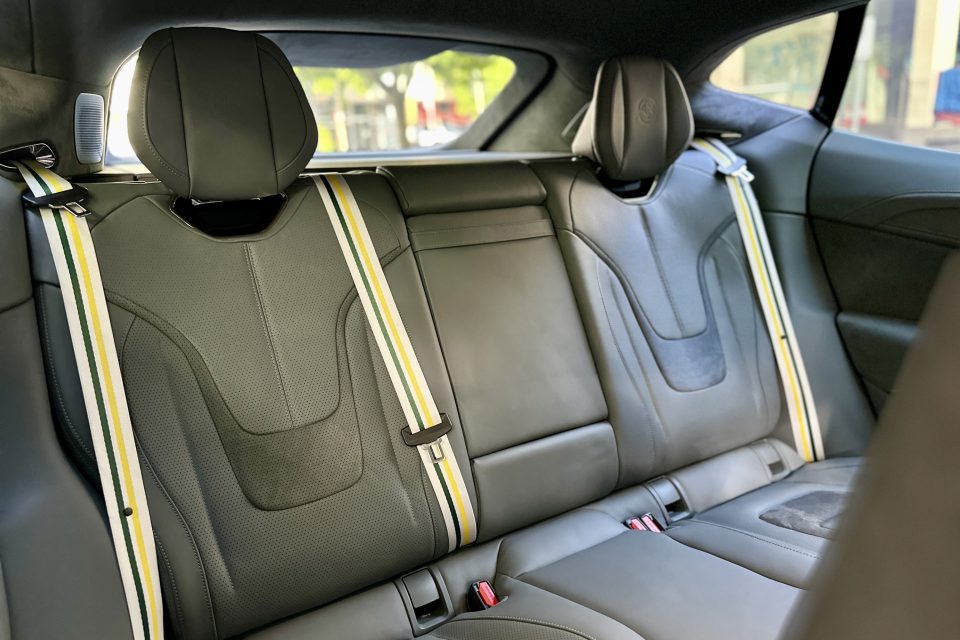
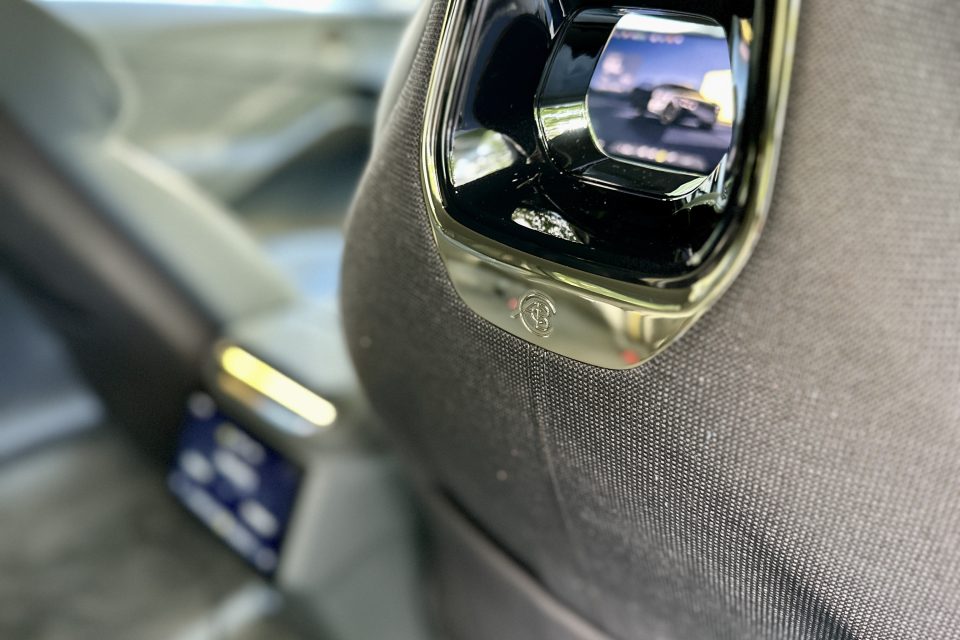



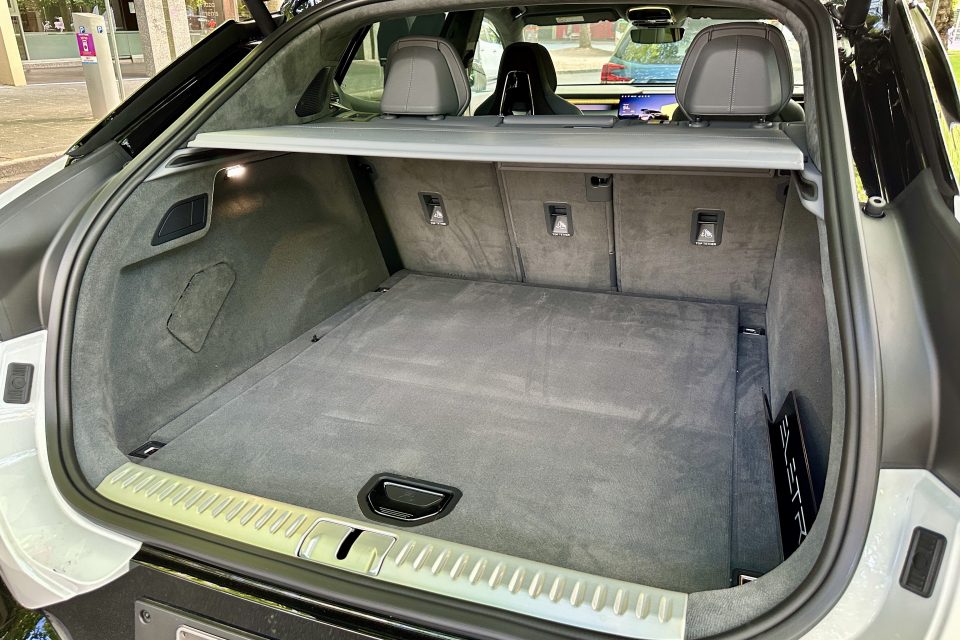

An electric motor on each axle and big slab of battery in between should, by rights, be quite an uninspiring combination.
Not to mention the fact it’s heavy. For comparison, the Eletre weighs more than a Dodge RAM.
But maybe it’s the four-wheel steering. Or the air suspension that hits that impossible sweet spot between stiff and cloud-like, because not only is the Eletre quick – with a 0-100 km/h time of 4.5 seconds for the S model and an even more mind-warping 2.9 for the R – but it also handles with such incredible poise and precision.
Lotus has made a jackhammer you could use to brush your teeth. While getting a massage. Say what you like about heritage – it’s awesome.
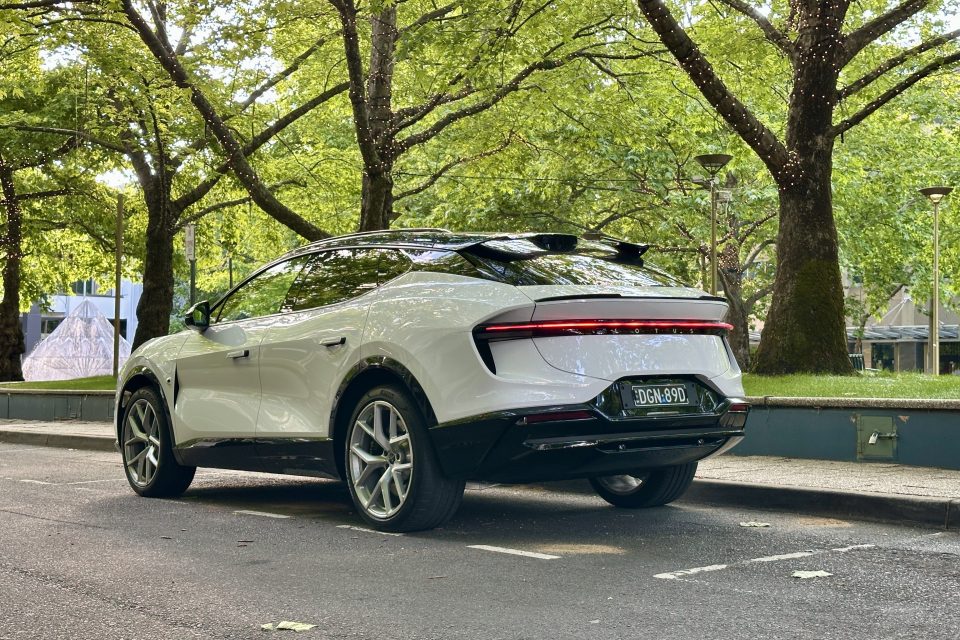




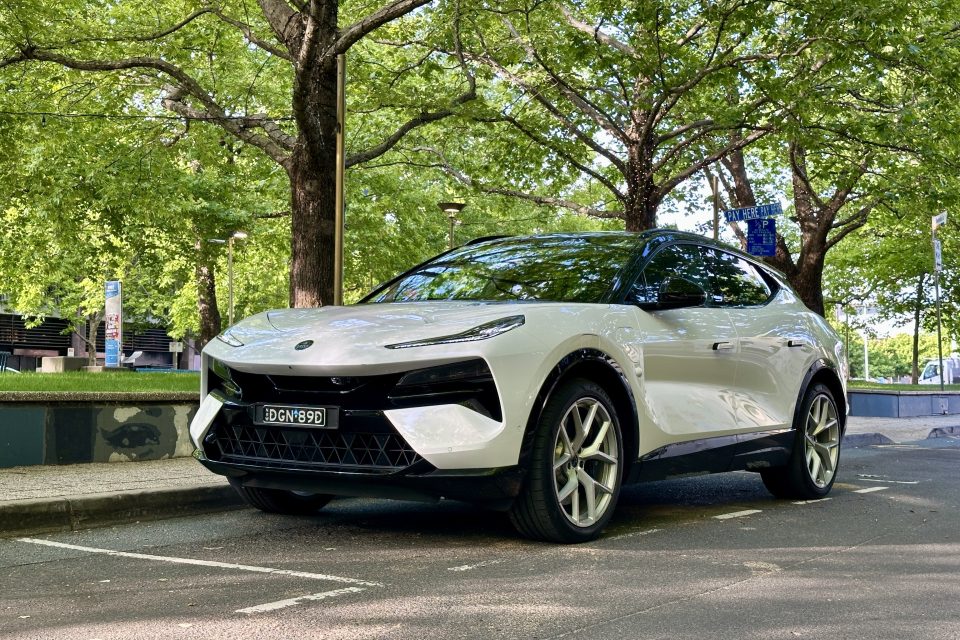
2024 Lotus Eletre S
- $229,990 (plus driveaway costs)
- 450 kW / 710 Nm
- 0-100 km/h in 4.5 seconds
- 535 km estimated range
- 2615 kg.
Visit Lotus Cars Australia for more information.












